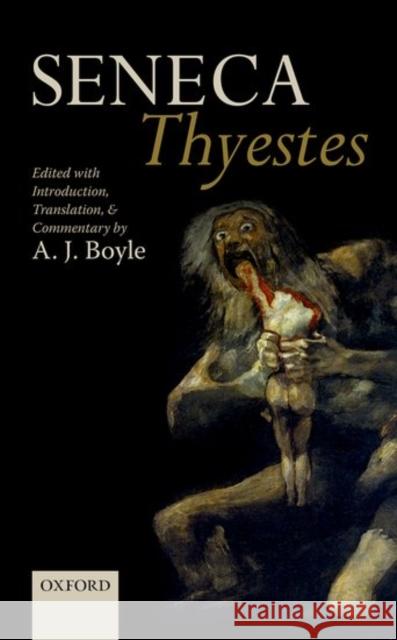Seneca: Thyestes: Edited with Introduction, Translation, and Commentary » książka
Seneca: Thyestes: Edited with Introduction, Translation, and Commentary
ISBN-13: 9780198744726 / Angielski / Twarda / 2017 / 704 str.
Although the myth of Atreus' gruesome vengeance on his brother, Thyestes, was embedded in Greek and Roman culture long before his time, Seneca's play is the only literary or dramatic account to have survived intact. Written probably in late Neronian Rome, Thyestes is now widely regarded as one of the tragedian's finest achievements and represents Seneca's most mature reflections on power and civilization and on the tragic theatre itself. The play's impact on European literature and drama from antiquity to the present has been considerable; now much studied in universities and colleges, and regularly adapted and performed, it still contains much that speaks pointedly to our times: its focus on appetite, lust, violence, and horror; its preoccupation with rhetoric, morality, and power; its concern with the problematics of kinship, and with political, social, and religious institutions and their fragility and impotence; its dramatization of reason's failure, the triumph and cyclicity of evil, the determinism of history, the mastery of the world through mastery of the word; its theatricalized and godless universe.
This new edition of Seneca's Thyestes offers a comprehensive introduction, newly edited Latin text, an English verse translation designed for both performance and high-level academic study, and a detailed exegetic, analytic, and interpretative commentary on the play. The aim throughout has been to elucidate the text dramatically as well as philologically, and to locate the play firmly in its contemporary historical and theatrical context and in the ensuing literary and dramatic tradition. As such, the reception of the play by European dramatists is given especial emphasis in the introduction and throughout the commentary; this and the accessible notes on the text make this edition of particular use not only to scholars and students of classics, but also of literature and drama, and to anyone interested in the cultural dynamics of literary reception and in the interplay between theatre and history.










